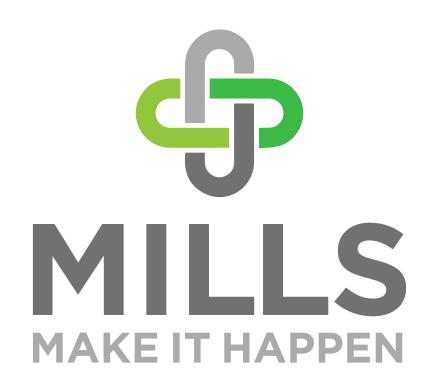
How to Modernise Your Business Without Losing Its Core Values
8th May 2025, 9:31 pm
Few industries need to strike a balance between traditional techniques and fast-paced modernisation in the same way as construction. Under pressure to keep up with constant innovation, many business leaders fear that embracing change could compromise the long-held values which have led them to success in the past. In this Q&A, Peter Noall, Managing Director of J Mills Contractors – who have been in operation for more than a century – shares his insights on walking the line between past and future, ensuring your business continues to thrive in a change-led context.
Why should modernisation be a priority for traditional businesses?
Partly it’s about remaining relevant and competitive, but primarily it paves the way for sustainability and resilience. In our industry – construction – change happens rapidly, with a growing emphasis on energy efficiency, digitisation and client-centric services. At J Mills, we have invested in new technologies for our clients like solar power, air-source heat pumps and HVAC systems while maintaining our strength in the traditional skills that support the implementation of these leading-edge technologies. But we’re committed to innovation in our internal practices, too – whether it’s digitising our project management processes to reduce delays and improve cost control or investing in a technology-backed employee listening strategy. This both empowers our entire operation to provide a better service for our clients and gives us a strong foundation to continue sustainable and resilient business growth.
What’s the biggest challenge when transitioning to modern practices?
Effective change management is a crucial tool in companies with an established culture. At J Mills, we have worked hard to empower some of our longest-standing team members to lead the way forward. Tony, one of our plumbers who has worked with us for more than 30 years, was the first to pursue his qualification for Air Source Heat Pump (ASHP) installation, which we now offer to our commercial clients, and private clients as part of the government-backed Boiler Upgrade Scheme. Pairing our experienced staff like Tony with newer employees has helped our team to develop fresh insights on sustainability which blends traditional skill and experience with a younger perspective. We’ve worked hard to show our people that modernisation supports rather than threatens their traditional expertise. Regular updates, transparency and celebrating milestones all count when it comes to motivating a team to embrace change.
What’s the first step towards modernisation in a traditional business?
Begin by identifying areas where improvements could create immediate value – like streamlined workflows, better technology, or more effective client engagement. At J Mills, we started small to develop some early wins before building up to larger-scale changes supported by the trust we’d built with our workforce. The process has led us into new opportunities – like in 2025 launching a Mechanical & Electrical (M&E) Services division in order to provide holistic support for our ever-growing client base.
How do you protect the core values of your business when exploring modernisation?
This almost sounds banal, but make sure you know what your existing core values are – and be honest about where your values ‘on the ground’ might differ from the posters on the wall in your offices! If you find that your values are at odds with modernisation, consider whether you may need to change direction.
Modernisation and innovation should be an extension of your values rather than a replacement. At J Mills, our motto is ‘make it happen’ – we have a no-nonsense approach and always find a way to achieve our clients’ needs. For us, modernisation looks like adopting new tools and methods to enhance our existing craftsmanship rather than replacing it. Effectively communicating the vital difference between reinforcement and replacement for our people’s skillsets was key to unlocking this for us.
It’s a cliché, but as you navigate significant change, keep asking yourself ‘Why?’ – for your business, your people and your clients.
How to Stay Secure in 2025: Expert Tips to Prevent Cyber Breaches